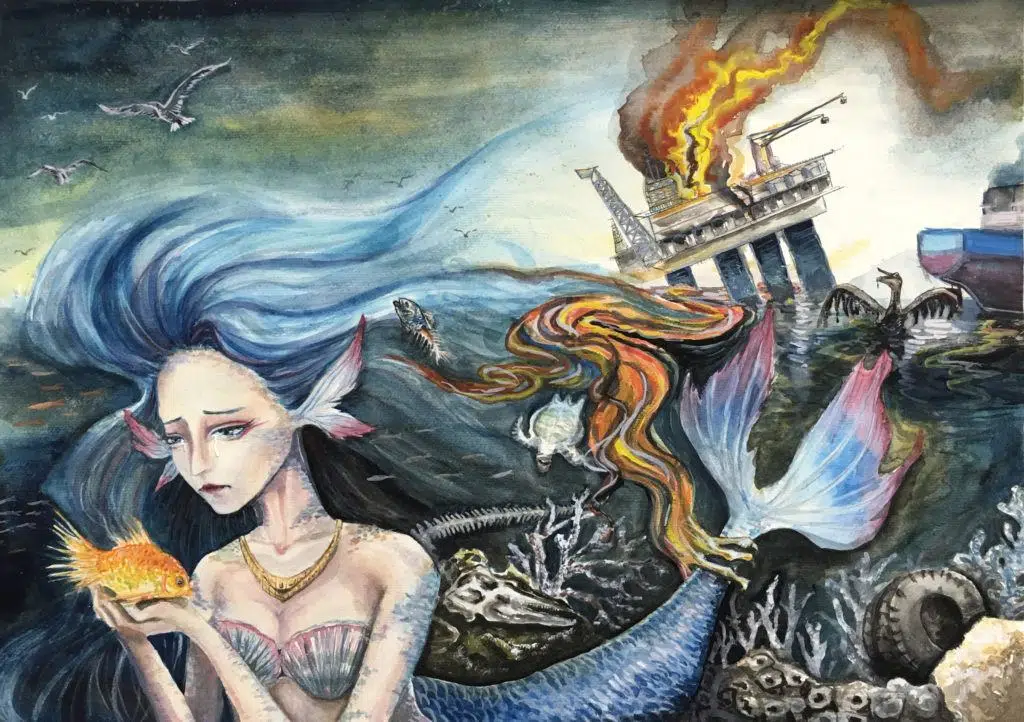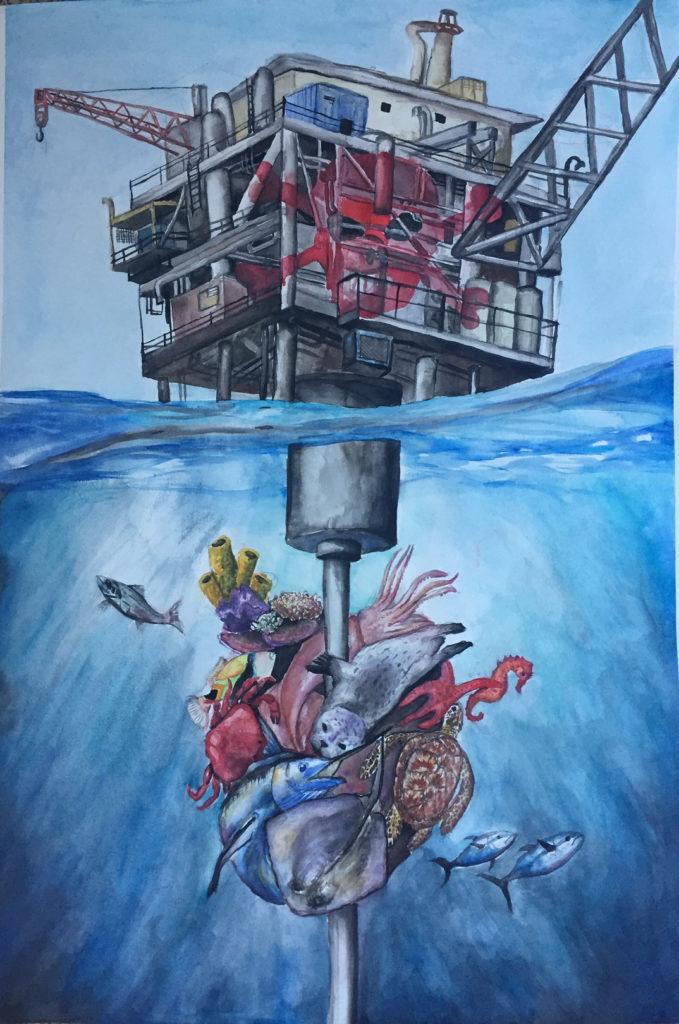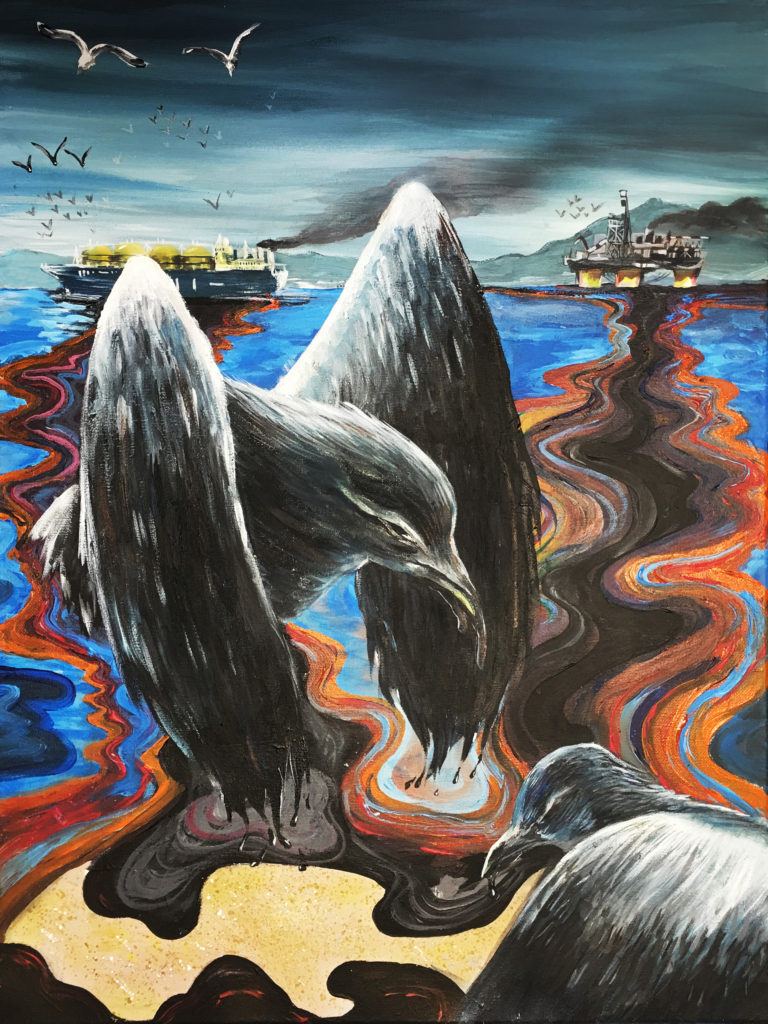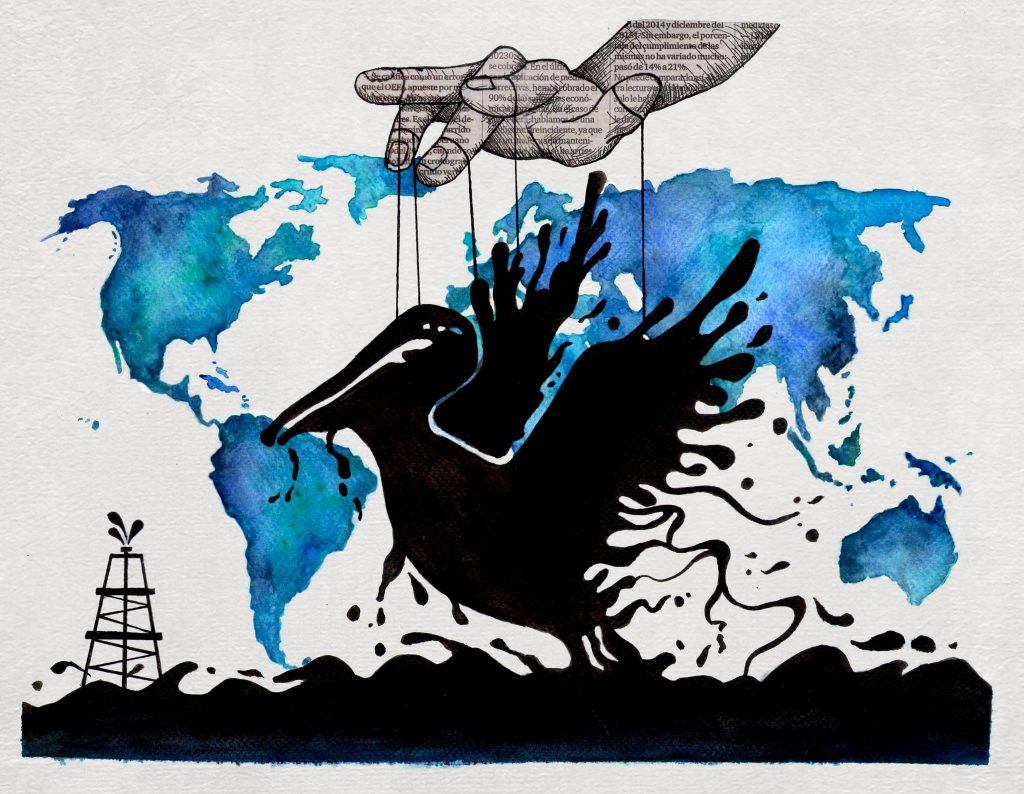
Protecting Our Coasts from Offshore Oil & Gas
January 11, 2019Bow Seat was thrilled to support New England Aquarium’s Protect Our Coasts event last night with a display of powerful student artwork. This event was created in partnership with Surfrider Foundation, Surfrider Foundation Massachusetts Chapter, Environment America, Women Working for Oceans, Environment Massachusetts, and 350 Cape Cod.
Hundreds of audience members heard from experts about the Trump Administration’s proposal to open the Atlantic Ocean to new offshore oil and gas exploration. Not only would this policy make the New England coast vulnerable to the devastating impacts of oil spills and the day-to-day leakage from wellheads, but the seismic airgun blasts used to explore drilling sites is catastrophic to the health of marine mammals and other ocean life.
tell me: how do you make the ocean smaller?
easy. you fill it up with noise:
metal engines roaring, lurching
across the waves with heavy backs,
great towering monsters keeping time.—From “cacophony” by Lois S. (Age 17, California)
Marine mammals, such as whales and dolphins, have a highly acute sense of hearing. These animals communicate with one another through sound, and they also use sound to navigate and to find food. The seismic blasts that oil companies use to map the ocean floor are extremely loud—more than 250 decibels—enough to permanently or temporarily damage the hearing capability of marine mammals. This hearing loss inhibits the ability of these animals to navigate, find food, and even causes whale calves to become separated from their mothers, which is almost always fatal to the young whales. In the past, mass strandings of whales, dolphins, turtles, and other marine life have occurred at the sites of these seismic airgun blasts. For wildlife in the Atlantic, including the critically endangered North Atlantic right whale, this oil and gas exploration is one more unnecessary and dangerous hurdle to recovery.
According to scientists at the New England Aquarium, “Scientific studies show that when seismic surveys happen, fewer fish are caught, more zooplankton die, and marine mammals struggle to flourish. Seismic airguns negatively impact everything around them.”
What can you do to help prevent oil and gas exploration and to protect marine life?
Make a public comment and let your voice be heard! Once the government shutdown ends, the formal proposal for the offshore oil and gas leasing program will be publicly released. At this time, there will be a 90-day comment period, when you can let your opposition to this plan be known.
We will let you know when this period begins, and you can also sign up for more information and for action alerts at neaq.org/offshoreoil or surfrider.org.
It is important to note that proposals similar to this one have been defeated in the past because people like you spoke out in opposition. Let’s work together to protect marine life and defend our coastal communities from harm!
Our current path is dark indeed,
But the future depends on you.—From “Look Skywards” by Grace L. (Age 17, North Carolina)
See how our student artists have explored the effects of oil and gas drilling:
Read “Seven Years Later: One Girl’s Reflections on the BP Oil Spill” by Sophia L. (Age 14, Alabama)
Read “Oil and Water Don’t Mix” by Olivia M. (Grade 7, Illinois)
Watch “In Our Hands” by Ely G. (Age 18, Texas)

“Mermaid’s Tears” by Tammy F. (Grade 8, Canada)

“Our Ocean’s Heartache” by Sophie N. (Age 16, California)

“Stained” by Jessica Z. (Grade 8, Canada)

“Black Tears” by Antonella M. (Age 18, Peru)

“More and More” by Sophie W. (Age 14, New Zealand)
Comments are closed for this post.
